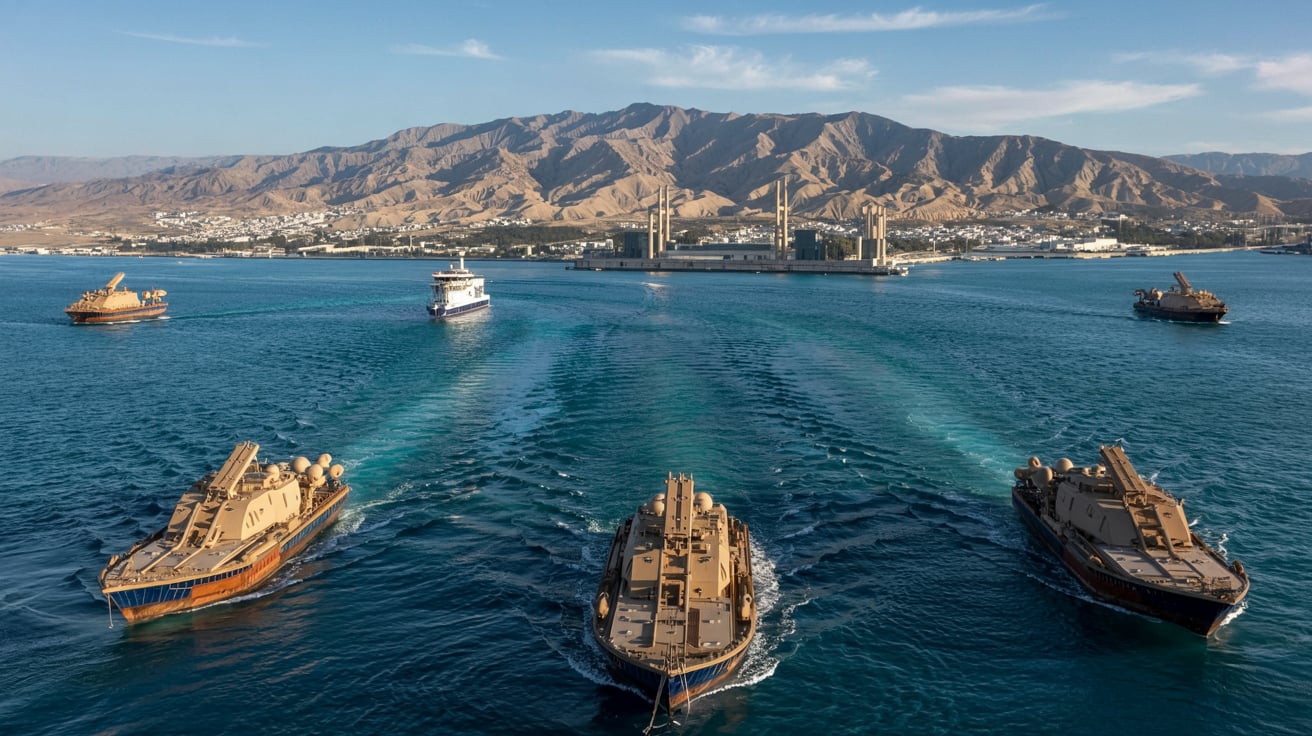 |
| Iran Warns Gulf Neighbors and Turkey Against Supporting U.S. Military Action |
Iran Warns Gulf Neighbors and Turkey Against Supporting U.S. Military Action
Introduction
Tensions between the United States and Iran have long shaped the geopolitical dynamics of the Middle East. A particularly volatile moment emerged when Iran issued a stern warning to its Gulf neighbors and Turkey, cautioning them against assisting American forces should then-President Donald Trump order a military strike on Tehran. This article explores the context, implications, and regional impact of Iran's warning, offering insight into one of the most precarious diplomatic standoffs in recent history.
Context of Rising Tensions
In early 2020, tensions between Iran and the United States were at a boiling point. The assassination of Iranian General Qassem Soleimani in a U.S. drone strike in Baghdad triggered outrage in Tehran and escalated fears of full-scale conflict. Iran vowed retaliation, and both nations appeared to be on the brink of war. Amid this fragile environment, the Iranian government began issuing warnings not just to Washington, but also to U.S. allies in the region.
The Warning
 |
| Iran Warns Gulf Neighbors and Turkey Against Supporting U.S. Military Action |
Iran’s warning was clear: any country that facilitates or supports a U.S. military strike on Iran would be considered complicit and face retaliatory consequences. This statement was directed at countries like Saudi Arabia, the United Arab Emirates, Bahrain, Qatar, and Turkey—all of which host U.S. military bases or cooperate with American forces.
Iranian officials emphasized that allowing American forces to use regional airspace, intelligence, or infrastructure to launch an attack would be viewed as an act of aggression. Tehran’s message was both a strategic deterrent and a signal to regional players to consider the consequences of aligning too closely with Washington’s military agenda.
Implications for Gulf States
The Gulf Cooperation Council (GCC) countries have historically maintained strong ties with the United States, relying on its security umbrella. However, Iran’s warning placed these nations in a precarious position:
Saudi Arabia: As a rival to Iran and a close ally of the U.S., Saudi Arabia faced the highest risk. Iranian missiles or drones could target oil infrastructure or military bases in retaliation.
United Arab Emirates: Hosting U.S. forces in places like Al Dhafra Air Base, the UAE was also within striking distance of Iranian military capabilities.
Qatar: Although it shares ties with Iran and hosts the largest American military base in the Middle East (Al Udeid), Qatar had to tread carefully to avoid provoking Tehran.
Bahrain: Home to the U.S. Navy's Fifth Fleet, Bahrain was particularly vulnerable to maritime attacks in the Persian Gulf.
Turkey: While a NATO member, Turkey’s relationship with both the U.S. and Iran has been complex. Iran’s warning to Ankara highlighted concerns over the Incirlik Air Base and its potential use in a U.S. strike.
Strategic Calculations
Iran's strategy was not just about deterrence—it aimed to fracture the unified front of America's regional alliances. By warning neighboring countries, Tehran sought to isolate U.S. forces and complicate logistical plans for any potential strike.
This warning also resonated with growing public opinion in the region against foreign military intervention. Many citizens in Gulf nations were wary of being drawn into another U.S.-Iran conflict, especially after the chaos following wars in Iraq and Syria.
International Reactions
The global community closely watched the situation, urging de-escalation. The United Nations called for restraint on all sides, warning that missteps could plunge the region into war. European nations—many still hoping to salvage the Iran nuclear deal—called for diplomacy over confrontation.
China and Russia, allies of Iran, expressed concern over U.S. actions in the region and supported Iran’s stance on sovereignty and regional security. These powers used the moment to criticize what they perceived as aggressive U.S. foreign policy.
The Trump Administration's Stance
President Trump’s administration maintained a maximum pressure campaign against Iran, combining economic sanctions with military posturing. Trump claimed his actions aimed to prevent war by projecting strength. However, critics argued that the strategy increased the risk of miscalculation and unintended conflict.
Despite the rhetoric and military buildup, Trump ultimately refrained from launching a full-scale attack on Iran. Strategic caution and fear of regional backlash—fueled in part by Iran’s threats to its neighbors—played a role in that decision.
Regional Fallout and Future Implications
Iran’s warning had lasting effects on regional dynamics:
Defense Posturing: Gulf states reevaluated their security strategies, with some enhancing defense systems and others exploring diplomatic outreach to Iran.
Diplomatic Engagements: The threat prompted some countries, like the UAE and Qatar, to pursue back-channel talks with Iran to avoid escalation.
US Military Footprint: The warnings sparked debates in host nations about the long-term presence of U.S. forces and their role in regional stability.
Conclusion
Iran’s stark warning to Gulf neighbors and Turkey against aiding U.S. military efforts underscored the fragile and complex web of alliances in the Middle East. It was a strategic move aimed at deterring aggression while sowing doubt among America's allies. While war was ultimately averted during the Trump administration, the episode remains a powerful reminder of how quickly regional tensions can escalate—and how deeply they impact global peace and security.


